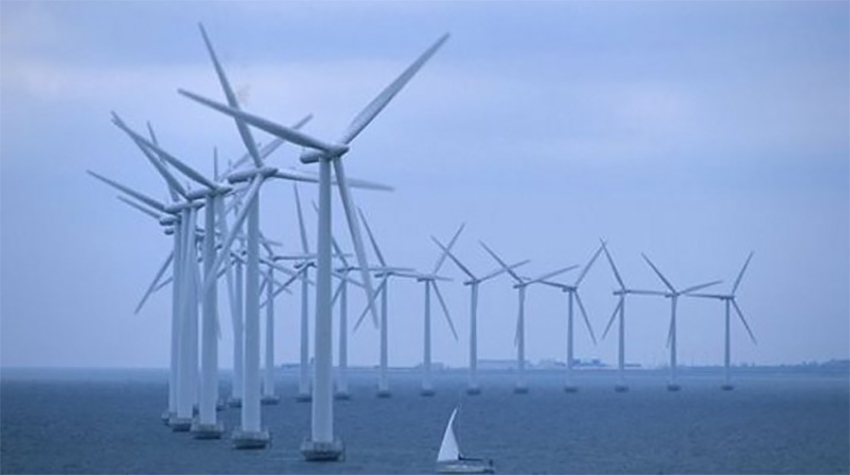Advantages of Wind Energy
Wind energy is a renewable source of power that harnesses the natural force of wind to generate electricity. In recent years, it has gained significant attention as a clean and sustainable alternative to traditional fossil fuels. In this article, we will explore the numerous advantages of wind energy and how it can revolutionize the way we generate electricity.
Environmentally Friendly
One of the key advantages of wind energy is its minimal environmental impact. Unlike fossil fuels, wind energy production does not release harmful greenhouse gases or pollutants into the atmosphere. By utilizing wind power, we can reduce our carbon footprint and combat climate change, making it a crucial step towards a greener future.
Renewable and Sustainable
Wind energy is an abundant and renewable resource. As long as the wind blows, we can harness its power to generate electricity. This makes wind energy a sustainable solution that can meet our energy needs without depleting natural resources. By investing in wind power, we can reduce our dependence on finite fossil fuels and ensure a more secure energy future.
Cost-Effective
Wind energy has become increasingly cost-effective in recent years. The advancements in technology and the growing number of wind farms have significantly reduced the cost of wind energy production. Additionally, once a wind turbine is installed, the operational costs are relatively low. As a result, wind energy has become a competitive and financially viable option for both large-scale and small-scale electricity generation.
Job Creation and Economic Growth
The wind energy sector has the potential to stimulate economic growth and create job opportunities. The development, construction, and maintenance of wind farms require a skilled workforce, providing employment opportunities in various fields. Moreover, wind energy projects often lead to investments in local communities, boosting the economy and supporting local businesses.
Energy Independence
By harnessing wind energy, countries can reduce their reliance on imported fossil fuels. This enhances energy security and reduces vulnerability to fluctuations in global fuel prices. Wind energy offers a viable solution for countries aiming to achieve energy independence and reduce their dependence on foreign oil and gas.

Wind energy presents a multitude of advantages that make it a promising source of clean and sustainable power. Its environmental friendliness, renewable nature, cost-effectiveness, job creation potential, and contribution to energy independence are just a few of the many reasons why wind energy is gaining momentum worldwide. By embracing wind power, we can pave the way for a more sustainable and greener future.
Frequently Asked Questions about the Advantages of Wind Energy
1. What are the main advantages of wind energy?
Wind energy is renewable, clean, abundant, and reduces greenhouse gas emissions. It also helps in reducing dependence on fossil fuels.
2. How does wind energy help the environment?
Wind energy is a clean source of power that produces no air or water pollution. It helps in reducing carbon dioxide emissions and mitigating climate change.
3. Does wind energy contribute to energy independence?
Yes, wind energy reduces reliance on imported fossil fuels. It provides a domestic source of energy that can help enhance energy independence.
4. Can wind energy help in reducing electricity costs?
Yes, wind energy has the potential to reduce electricity costs in the long run. Once the wind turbines are installed, the fuel source (wind) is free, unlike fossil fuels that require ongoing purchases.
5. What role does wind energy play in job creation?
Wind energy projects create jobs in manufacturing, construction, operations, and maintenance. It contributes to local economic development and job growth.
6. Is wind energy a reliable source of power?
Yes, wind energy can be a reliable source of power when integrated with other energy sources and supported by an efficient grid system. Advances in technology have improved the reliability of wind turbines.
7. Does wind energy have any health benefits?
Wind energy production does not produce harmful emissions that can negatively impact human health. It helps in reducing air pollution-related health issues.
8. Can wind energy help in reducing water consumption?
Unlike fossil fuel power plants, wind energy does not require large amounts of water for cooling purposes. Therefore, it helps in conserving water resources.
9. Does wind energy have a positive impact on rural communities?
Yes, wind energy projects can bring economic benefits to rural communities by providing lease payments to landowners and creating job opportunities.
10. How does wind energy contribute to a sustainable future?
Wind energy is a sustainable source of power as it relies on wind, which is a naturally occurring resource. It helps in reducing carbon emissions, mitigating climate change, and preserving natural resources.
11. Can wind energy help in reducing the reliance on fossil fuels?
Yes, wind energy is a viable alternative to fossil fuels. By harnessing the power of wind, we can reduce the need for burning fossil fuels, which are finite and contribute to environmental degradation.
12. Are there any financial incentives for investing in wind energy?
Many governments provide financial incentives such as tax credits, grants, and subsidies to promote the development of wind energy projects. These incentives make investing in wind energy more economically attractive.
13. Does wind energy have any impact on wildlife?
While wind turbines can pose a risk to certain bird and bat species, proper siting and mitigation measures can minimize the impact. Studies are conducted to ensure the least possible harm to wildlife.
14. Can wind energy be used for residential purposes?
Yes, small-scale wind turbines can be installed for residential purposes, especially in areas with sufficient wind resources. They can help reduce electricity bills and increase energy self-sufficiency.
15. How does wind energy contribute to a diversified energy mix?
By adding wind energy to the energy mix, we reduce the dependence on a single energy source, such as fossil fuels. This diversification enhances energy security and helps in creating a more resilient energy system.




